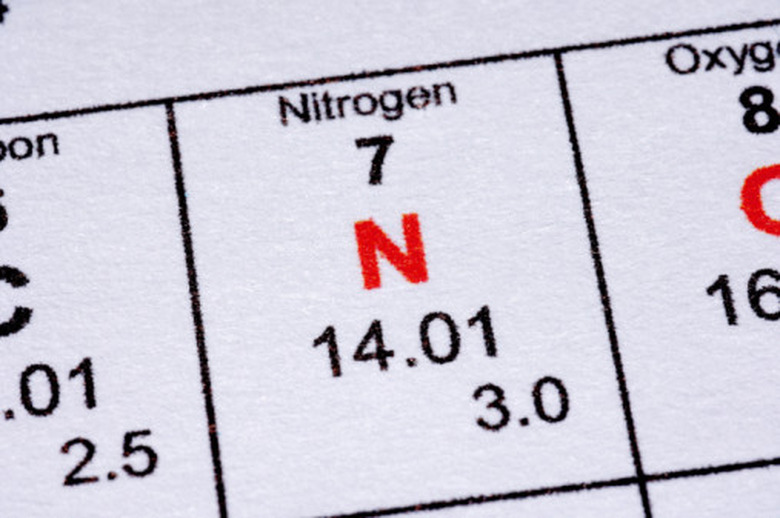What Effect Does Fertilizer Have On The Nitrogen Cycle?
Nitrogen is an important component in plant and animal proteins and, therefore, essential to all life. Although nitrogen is the most abundant element in the air, most organisms cannot use the nitrogen in the atmosphere. The nitrogen cycle converts atmospheric nitrogen into a biologically usable form. However, this natural process can be negatively altered by the use of fertilizers.
Nitrogen Fixation
Nitrogen Fixation
The nitrogen cycle begins with the biological processes that take unusable atmospheric nitrogen and convert it into a fixed form. Precipitation and legume crops like alfalfa and beans deposit nitrogen from the air into soils and waterways. Bacteria and algae combine the nitrogen with hydrogen, forming ammonia.
Absorption
Absorption
A few plants use the ammonia in the soil, but ammonia is toxic to most organisms. Bacteria in the soil continue the nitrogen cycle by converting the ammonia to the more usable and less toxic nitrite and nitrate. Plants take up these nitrogen compounds through their roots. Animals and other organisms absorb the nitrogen compounds by eating the plants or by eating other animals and organisms that ate the plants. Bacteria convert unused nitrates back into atmospheric nitrogen.
The Cycle Continues
The Cycle Continues
The nitrogen cycle begins again as animal waste and decaying plants and animals deposit nitrogen into the soil, while precipitation deposits atmospheric nitrogen into the soil. Bacteria and algae once again convert nitrogen into ammonia, and the cycle continues.
Problems
Problems
The nitrogen cycle is a natural process that adds nitrogen to the soil. However, the use of fertilizers has increased the amount of usable nitrogen in the soil. The extra nitrogen seems appealing from the agricultural viewpoint that more nutrients in the soil means higher yield crops. Unfortunately, ecosystems, including those created through crop production, have limited nitrogen needs. Excess nitrogen not taken up by plants and unable to be converted back into atmospheric form by bacteria leaches deeper into the soil and out of the cycle, contaminating groundwater supplies and encouraging the growth of toxic algae blooms.
